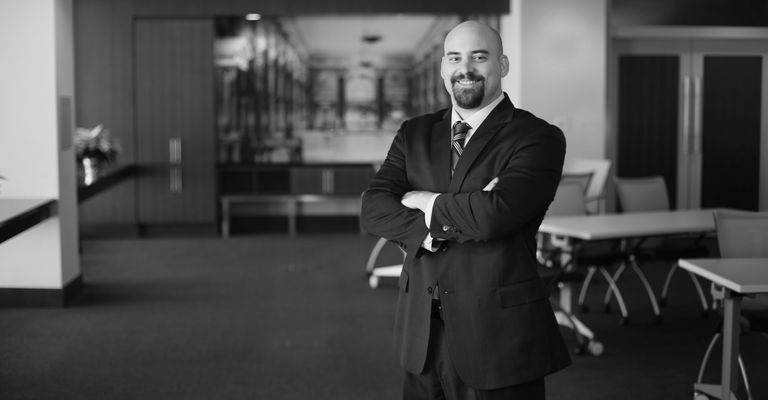Insights
Fourth Circuit holds faxes received online not subject to TCPA
Feb 06, 2024Summary
A fax is a fax is a fax… or is it? In a recent ruling in the long-running TCPA junk fax case Career Counseling, Inc. v. AmeriFactors Financial Group, the Fourth Circuit Court of Appeals held that the statute’s prohibition against uninvited fax advertisements does not apply to faxes received through online fax services. In a very positive development for TCPA defendants, the Court affirmed the denial of class certification for a proposed class including both members who used a traditional fax machine and those who used an online fax service. The Court reasoned that identifying the traditional fax machine users would require individualized inquiries, which rendered the proposed class unascertainable. While consistent with the Federal Communication Commission’s declaratory ruling from In the Matter of AmeriFactors Financial Grp., LLC Petition for Expedited Declaratory Ruling (“FCC Ruling”),[1]the decision marks a departure from other courts that have grappled with whether the FCC Ruling is binding, entitled to deference or retroactive.
Background
In 2016, employment staffing agency Career Counseling sued AmeriFactors Financial Group, an accounts receivable financing business, over a single uninvited fax advertisement, alleging violations of the Telephone Consumer Protection Act (“TCPA"). The TCPA forbids using “any telephone facsimile machine, computer, or other device to send, to a telephone facsimile machine, and unsolicited advertisement.”[2]It imposes statutory damages of $500-$1,500 per consumer, per unsolicited fax advertisement, and does not require a plaintiff to prove actual damages – so it is frequently litigated in the class action arena. In this case, Career Counseling proposed a class consisting of 59,000 others who were allegedly sent the same fax, and asserted its individual claim for $500 in statutory damages for the single fax it received. The case was stayed as a result of AmeriFactors petitioning the FCC for a declaratory ruling addressing the TCPA’s application to online fax services, which was ultimately issued in December 2019.
The FCC Ruling
The FCC ruled the TCPA does not prohibit uninvited fax ads received through online fax services[3]because a “fax received by an online fax service as an electronic message is effectively an email … [and] not subject to the TCPA.”[4]The FCC Ruling was widely hailed as a win for TCPA defendants.
Unsurprisingly, the FCC Ruling has been hotly litigated in junk fax cases since its issuance. Defendants rely on it to defeat class certification and get defense judgments on individual claims. Class action plaintiffs fight vigorously to avoid its application, asserting it is non-binding, not entitled to deference, and not retroactive, and have been trying to find ways to certify classes based on recipients with traditional fax machines.
The Trial Court’s Ruling
After the AmeriFactors case resumed, the trial court found it was required to defer to the FCC Ruling under the Hobbs Act.[5]This meant that any purported class member who received the fax in question via an online fax service, rather than a traditional fax machine (which the court referred to as a “stand-alone fax machine”), did not have a TCPA claim. The court then denied class certification because individualized inquiries would be required of each fax recipient to determine if they received the fax on a traditional fax machine or through an online fax service, so a class was not ascertainable.[6]
The Fourth Circuit
Enter the Fourth Circuit Court of Appeals, which found there was no need to determine whether the FCC Ruling is entitled to Hobbs Act, Chevron or Skidmore deference or whether it is retroactive. Instead, the Court cut to the chase, looking to the statute’s plain language, and held the TCPA does not prohibit sending unsolicited fax ads to online fax services.[7]
The Court first noted the statute’s express distinction between the equipment used to send a fax (“telephone facsimile machine, computer, or other device”) and the equipment through which the fax is received (“telephone facsimile machine”).[8]The Court then determined that online fax services do not meet the TCPA’s definition of “telephone facsimile machine”[9]because they do not receive an “electronic signal” over “a regular telephone line” or have the capacity “to transcribe text or images onto paper.”[10]In doing so, the Court accepted the definition of “online fax service” from the FCC Ruling. The Court also explained that its interpretation is consistent with the TCPA’s legislative history, in that online fax services do not involve the harms the junk fax amendment was intended to protect against: 1) shifting certain costs of advertising to the recipient; and 2) tying up the recipient’s fax machine.[11]Accordingly, the proposed class was not “ascertainable” because Career Counseling failed to present sufficient evidence to show which of the 59,000 recipients had traditional fax machines and because individualized inquiries would be required of each recipient to determine if they received the fax on such a machine or through an online fax service.[12]Hence, the denial of class certification was affirmed.[13]
Takeaways
Like the FCC Ruling, the Fourth Circuit’s interpretation of the TCPA significantly limits the scope of a potential class in junk fax cases. Such a class cannot include members who received a fax through online fax services; class membership must instead be limited to those who received the fax on a traditional or stand-alone fax machine. This is welcome news to TCPA defendants in fax cases hoping to defeat class certification. The Fourth Circuit’s ruling may also short-circuit many of TCPA plaintiffs’ arguments against applying the FCC Ruling and potentially streamline TCPA fax litigations involving faxes received through online fax services and traditional fax machines.
Importantly, the ruling does not change the definition of “telephone facsimile machine, computer, or other device” for purposes of sending a fax. Defendants cannot escape liability for TCPA violations by using an online fax service to send a fax. Before sending marketing faxes, a business should consult with its TCPA counsel to ensure it has obtained the proper consent, uses compliant opt-out language, and has satisfied the other requirements of the statute.
[1] 34 F.C.C.R. 11950, (2019)
[2] 47 U.S.C. § 227(b)(1)(C).
[3] Online fax services send and receive digital information over telecommunications facilities and allow users to access faxes through an Internet server or as attachments to emails. FCC Ruling at ¶ 2.
[4] FCC Ruling at ¶ 11.
[5] 28 U.S.C. § 2342(1).
[6] The trial court did, however, grant summary judgment to Career Counseling on its individual claim.
[7] Career Counseling, Inc. v. AmeriFactors Financial Group, Case No. 22-1119, Doc. 40 at 11 (4th Cir. Jan. 22, 2024).
[8] Id. at 12.
[9] “Equipment which has the capacity (A) to transcribe text or images, or both, from paper into an electronic signal and to transmit that signal over a regular telephone line, or (B) to transcribe text or images (or both) from an electronic signal received over a regular telephone line onto paper.” 47 U.S.C. § 227(a)(3).
[10] Career Counseling, Case No. 22-1119, Doc. 40 at 12-13.
[11] Id. at 14-15.
[12] Id. at 16-18.
[13] AmeriFactors’s was unable to overturn the summary judgment on the individual claim, as the Court affirmed there was not sufficient evidence the fax broadcaster that sent the fax engaged in deception or fraud against AmeriFactors, conduct which would have excused AmeriFactors from liability under the FCC’s declaratory ruling in Akin Gump Strauss Hauer & Feld LLP, 35 F.C.C.R. 10424 (2020). Specifically, there was no evidence the fax broadcaster made any false affirmative representations that the fax was legal and AmeriFactors did not question the fax broadcaster about the general legality of sending the fax.
Related Practice Areas
-
Data Privacy & Security




